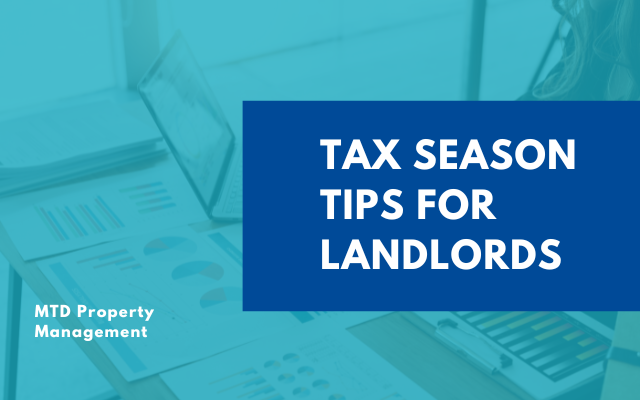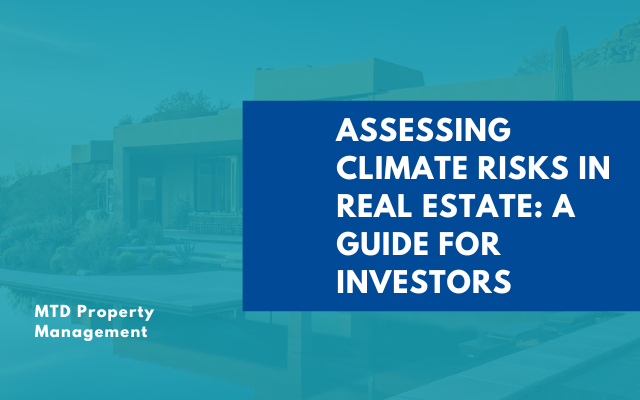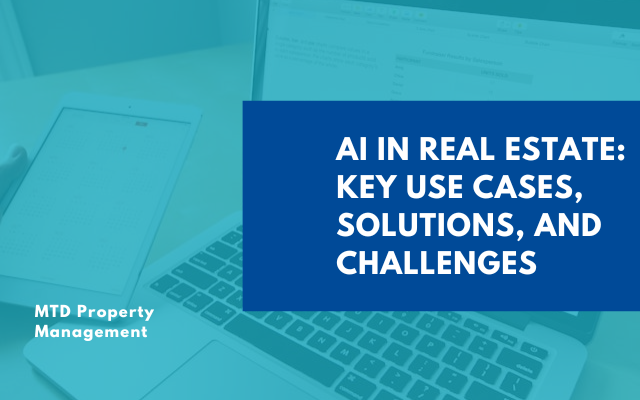
Key Takeaways
- Maintain Detailed Records: Keep thorough documentation of all rental income and expenses throughout the year to ensure accurate reporting and maximize potential deductions.
- Understand Deductible Expenses: Familiarize yourself with the range of expenses that can be deducted, such as advertising, insurance, maintenance, and professional fees, to reduce taxable income.
- Differentiate Between Repairs and Improvements: Recognize the distinction between deductible repairs and capital improvements, as the latter may need to be depreciated over time rather than deducted in full.
- Consult Tax Professionals: Engage with tax advisors or accountants who specialize in rental properties to navigate complex tax regulations and optimize your tax strategy.At MTD Property Management, we understand that between tracking expenses, filing forms, and understanding deductions, it’s easy to overlook potential savings or even make costly mistakes.
Tax season can feel overwhelming for many rental property owners.
At MTD Property Management, we understand that between tracking expenses, filing forms, and understanding deductions, it’s easy to overlook potential savings or even make costly mistakes.
But with the right preparation and knowledge, landlords can maximize their deductions and make tax season a smoother experience. Keep reading to learn tips to consider.
Know What Counts as Rental Income
The first step in managing taxes as a landlord is understanding what you need to report as income. Most landlords know that rent payments count, but other forms of income also need to be reported to the IRS.
Rental income includes:
- Monthly rent payments
- Advance rent (e.g., first and last month's rent paid upfront)
- Lease cancellation fees paid by tenants
- Tenant-paid owner expenses (like utilities or maintenance)
- Retained security deposits if used for damage repairs
- Fair market value of goods or services received in exchange for rent
All of this must be reported in the year it is received, not necessarily when it is due. Keeping a detailed log of every dollar or equivalent value that comes in is essential for accurate tax reporting.
Don’t Miss Out on Valuable Deductions
One of the biggest benefits of owning rental property is the range of tax deductions you can claim. These deductions help reduce your taxable income and can significantly improve your bottom line.

Here are common expenses that landlords can deduct:
● Mortgage Interest: If you financed your property with a mortgage, the interest portion of your payments is tax-deductible.
● Property Taxes: Local and state property taxes are also deductible.
● Repairs and Maintenance: Expenses for fixing broken fixtures, repainting walls, repairing leaks, or replacing appliances are usually deductible in the year they occur, so long as they’re not considered major improvements.
● Insurance Premiums: Insurance for your rental property, including liability, hazard, and flood insurance—is tax-deductible.
● Utilities and Services: If you cover any utilities (like water or electricity) or services (like trash removal or lawn care), you can deduct those costs.
● Professional Fees: Hiring an accountant, attorney, or property manager? These expenses are deductible too.
● Advertising Costs: The cost of listing your property for rent, whether online or in print, also qualifies.
Understanding what you can and cannot deduct makes a huge difference during tax season. That’s why it’s important to keep clear records and consult with a tax professional if needed.
Keep Excellent Records
Good record-keeping is not just for your peace of mind—it’s essential for proving your deductions if the IRS ever audits you. You should keep all receipts, bank statements, invoices, and documentation related to the rental property.

Here are a few key items to store and organize:
- Lease agreements
- Security deposit records
- Expense receipts (materials, labor, maintenance)
- Mortgage and insurance documents
- Proof of rent payments received
- Communication logs with tenants or vendors
The IRS typically requires records to be kept for at least three years, but longer is better if you’re tracking depreciation or long-term improvements.
Understand the Power of Depreciation
Depreciation is one of the most powerful tax-saving tools available to landlords. It allows you to deduct a portion of your property’s value each year as the building “wears out” over time.
Generally, residential rental properties can be depreciated over 27.5 years, while improvements and equipment may have different schedules.
It’s important to note that land cannot be depreciated; only the structure and certain improvements can be. If you make significant upgrades (like replacing a roof or renovating a kitchen), those costs usually must be capitalized and depreciated rather than deducted in a single year.
Keeping accurate records of your depreciation schedule can save you thousands over time and help improve your long-term cash flow. If you’re unsure how to calculate depreciation, it’s best to work with a qualified tax professional.
Track Travel and Mileage for Rental Business
Many landlords overlook travel expenses, but they’re often deductible if the travel is directly related to managing your rental property.

This includes:
- Driving to the property for inspections, repairs, or tenant meetings
- Traveling to pick up supplies or meet with contractors
- Attending legal proceedings related to your rental
You can deduct actual travel expenses (gas, tolls, parking) or use the IRS standard mileage rate. Be sure to document each trip with a log of the date, purpose, location, and mileage.
If you travel out of town overnight for rental business, you may also be able to deduct lodging and meals. However, the purpose of the trip must be primarily business-related.
Stay Ahead with Quarterly Planning
While many landlords only think about taxes once a year, proactive planning throughout the year leads to better results. Consider doing quarterly check-ins on your rental income and expenses. This gives you time to adjust, make smart financial decisions, and improve your overall ROI while avoiding surprises at the end of the year.
Here are a few things to track every quarter:
- Estimated income and tax liability
- Any large expenses or improvements
- Changes in occupancy or rent collected
- New vendors or service agreements
- Updated depreciation or asset schedules
Using accounting software or working with a bookkeeper can make these quarterly reviews much easier and more accurate.
Why Working with a Property Management Company Helps
Handling all the paperwork, records, and financial data can be exhausting, especially if you have multiple properties or other businesses. This is where working with a professional property management company can be a game-changer—not just operationally but also financially.
Here’s how a property manager helps during tax season:
- Detailed Financial Reports: Most property management companies provide monthly and year-end financial reports that are formatted for easy use at tax time.
- Expense Tracking: Property managers track and document maintenance costs, utilities, contractor payments, and other expenses throughout the year.
- Vendor Coordination: Since managers hire and coordinate service providers, they maintain records and receipts that you can use for deductions.
- Legal and Compliance Knowledge: Professional managers stay updated on tax-related changes and reporting requirements, ensuring you remain compliant.
- Time Savings: Perhaps most importantly, you can offload time-consuming administrative work and focus on other areas of your business or life.
Partnering with a property management company not only makes tax season easier but also provides peace of mind that your finances are being handled properly all year round.
Bottom Line
Tax season doesn’t have to be stressful for landlords. By following these tips, you can save money and stay compliant with tax laws. Also, the real key to simplifying tax season is staying organized, and knowing when to bring in professional help.
If you want a smoother, more profitable experience as a rental property owner, consider hiring a professional property management company like
MTD Property Management.









